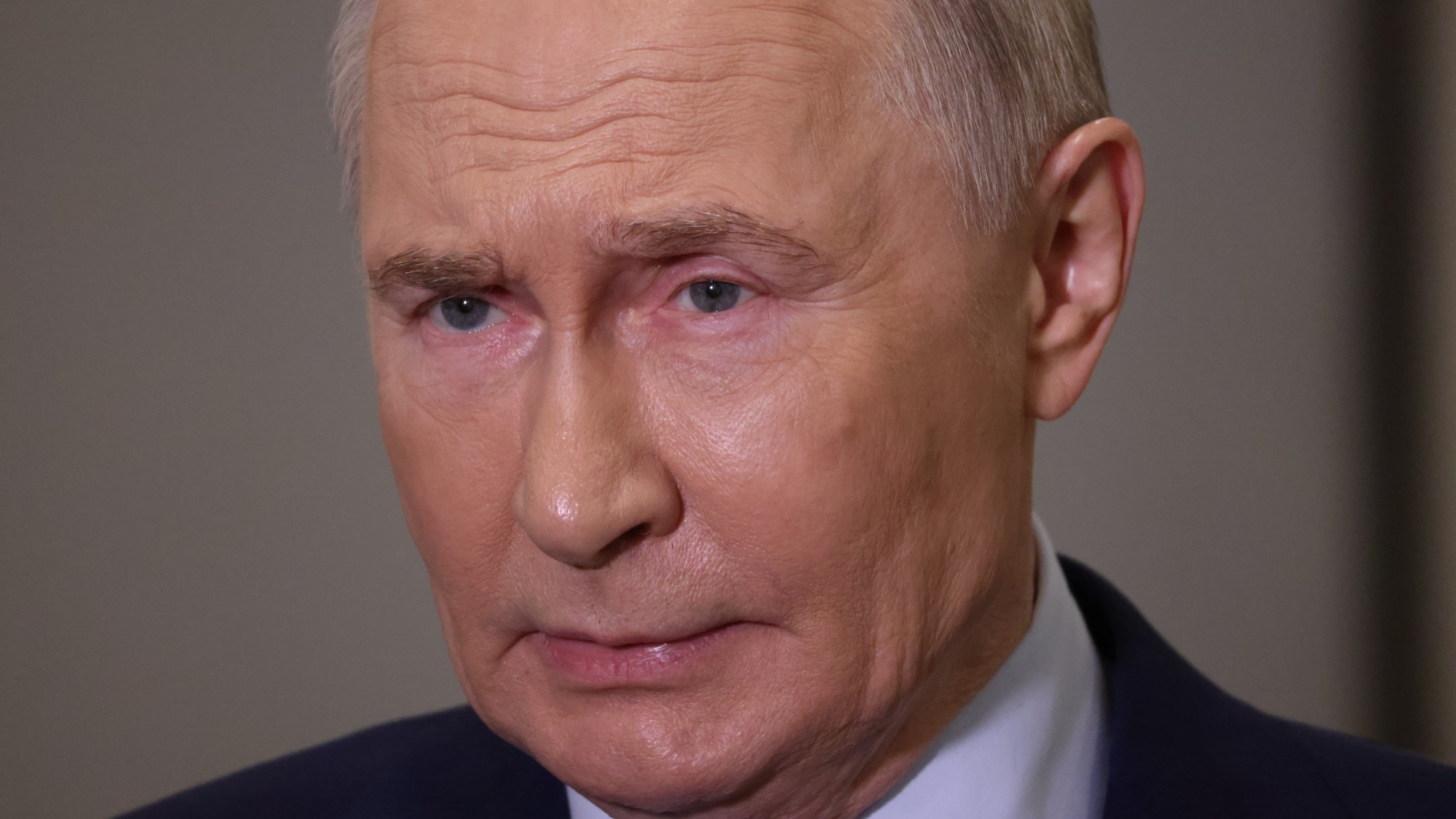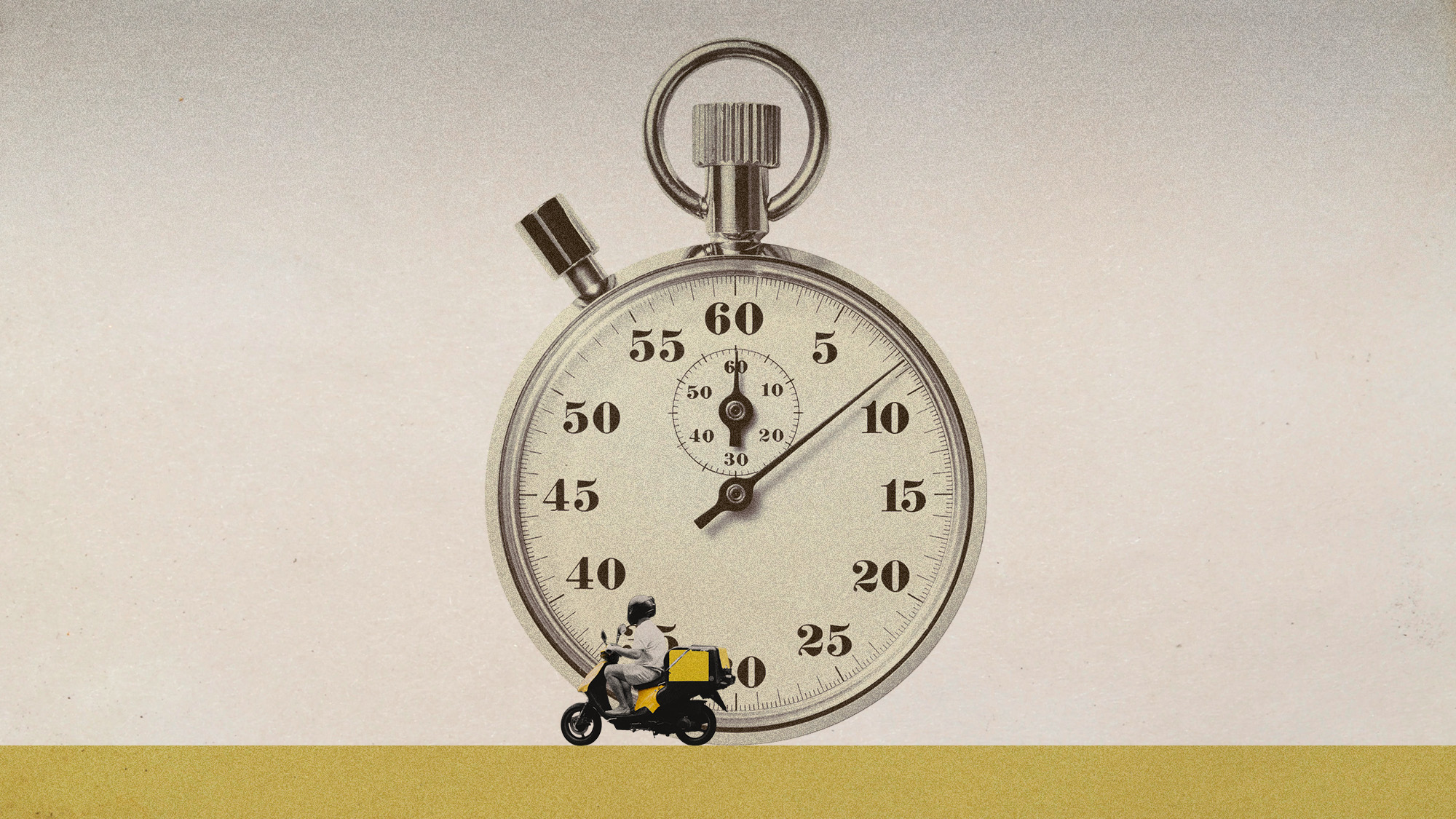Will latest Russian sanctions finally break Putin’s resolve?
New restrictions have been described as a ‘punch to the gut of Moscow’s war economy’

A free daily email with the biggest news stories of the day – and the best features from TheWeek.com
You are now subscribed
Your newsletter sign-up was successful
Donald Trump has targeted the “economic equivalent of Russia’s crown jewels” with a new wave of sanctions, said Sky News.
The president has slapped fresh restrictions on Russia’s two largest oil companies, in response to what he calls Vladimir Putin’s “lack of serious commitment to a peace process to end the war in Ukraine”.
What did the commentators say?
The new measures, which target Russian giants Rosneft and Lukoil, as well as more than 30 subsidiaries, “aren’t just any sanctions”, said Sky News, they’re a “punch to the gut of Moscow’s war economy”. They’re “no slap on the wrist” because oil is “Russia’s bloodstream”, and Trump “just cut off the blood flow”, said the broadcaster.
The Week
Escape your echo chamber. Get the facts behind the news, plus analysis from multiple perspectives.

Sign up for The Week's Free Newsletters
From our morning news briefing to a weekly Good News Newsletter, get the best of The Week delivered directly to your inbox.
From our morning news briefing to a weekly Good News Newsletter, get the best of The Week delivered directly to your inbox.
The timing is significant too, said the BBC, because the new measures were announced “just days after the UK sanctioned the same two Russian oil companies”, and European Union countries have issued new measures that ban the import of Russian liquefied natural gas from 2027.
Putin’s “tactical triumph didn’t last long”, said The New York Times – last week “it looked as if the Russian president had outmanoeuvred his adversaries yet again” by making a “deftly placed call” to Trump that “scuttled any expansion in American support for Ukraine”. But yesterday “Russians awoke to new American sanctions against their oil industry”.
The sale of oil and gas accounts for about a quarter of the Russian budget, and Moscow’s oil industry is already under pressure from increasingly long-range strikes by Kyiv. So the measures “take aim at the heart of the Russian economy” and deal a major blow to Putin’s “effort to cajole” Trump into “forcing Ukraine to capitulate to Russia’s main demands”.
Actually, the sanctions are “not a maximal blow,” Daniel Fried, a former US assistant secretary of state for Europe, told Atlantic Council, and there may need to be tougher US actions, such as “joining Europe in lowering the price cap on Russian oil, enforcing the oil price cap by putting sanctions on the Russian shadow fleet of tankers, and sanctioning ports that service them”.
But the measures are still a “strong move” and they could “put even more downward pressure on Russian oil revenues” by pushing Moscow to further discount its oil and “forcing purchasers to consider alternative sources of oil”.
A free daily email with the biggest news stories of the day – and the best features from TheWeek.com
What next?
Some experts in Russia said that the new measures would have a “muted impact”, said The New York Times. Moscow has “become adept at evading restrictions” by using “hundreds of old vessels uninsured by Western companies” and by processing transactions “through buffer companies in third countries”.
So although oil prices “rose sharply” yesterday, the sanctions’ “potential potency” may “ultimately depend on how the penalties are enforced and how energy buyers react to them”.
In response to the move, four Chinese state oil companies have suspended purchases of Russian seaborne oil. Indian refineries have also announced that they will slash imports of Russian crude to comply with the new sanctions. If these cancellations “prove permanent”, Russia “faces a serious economic hit”, said The Telegraph.
Chas Newkey-Burden has been part of The Week Digital team for more than a decade and a journalist for 25 years, starting out on the irreverent football weekly 90 Minutes, before moving to lifestyle magazines Loaded and Attitude. He was a columnist for The Big Issue and landed a world exclusive with David Beckham that became the weekly magazine’s bestselling issue. He now writes regularly for The Guardian, The Telegraph, The Independent, Metro, FourFourTwo and the i new site. He is also the author of a number of non-fiction books.
-
 Corruption: The spy sheikh and the president
Corruption: The spy sheikh and the presidentFeature Trump is at the center of another scandal
-
 Putin’s shadow war
Putin’s shadow warFeature The Kremlin is waging a campaign of sabotage and subversion against Ukraine’s allies in the West
-
 Media: Why did Bezos gut ‘The Washington Post’?
Media: Why did Bezos gut ‘The Washington Post’?Feature Possibilities include to curry favor with Trump or to try to end financial losses
-
 Currencies: Why Trump wants a weak dollar
Currencies: Why Trump wants a weak dollarFeature The dollar has fallen 12% since Trump took office
-
 TikTok: New owners, same risks
TikTok: New owners, same risksFeature What are Larry Ellison’s plans for TikTok US?
-
 Trump wants a weaker dollar, but economists aren’t so sure
Trump wants a weaker dollar, but economists aren’t so sureTalking Points A weaker dollar can make imports more expensive but also boost gold
-
 Leadership: A conspicuous silence from CEOs
Leadership: A conspicuous silence from CEOsFeature CEOs were more vocal during Trump’s first term
-
 The end for central bank independence?
The end for central bank independence?The Explainer Trump’s war on the US Federal Reserve comes at a moment of global weakening in central bank authority
-
 Can Trump make single-family homes affordable by banning big investors?
Can Trump make single-family homes affordable by banning big investors?Talking Points Wall Street takes the blame
-
 Blinkit: India’s 10-minute delivery app
Blinkit: India’s 10-minute delivery appUnder The Radar Market pressures and rider unrest are casting a shadow over leading player
-
 TikTok secures deal to remain in US
TikTok secures deal to remain in USSpeed Read ByteDance will form a US version of the popular video-sharing platform